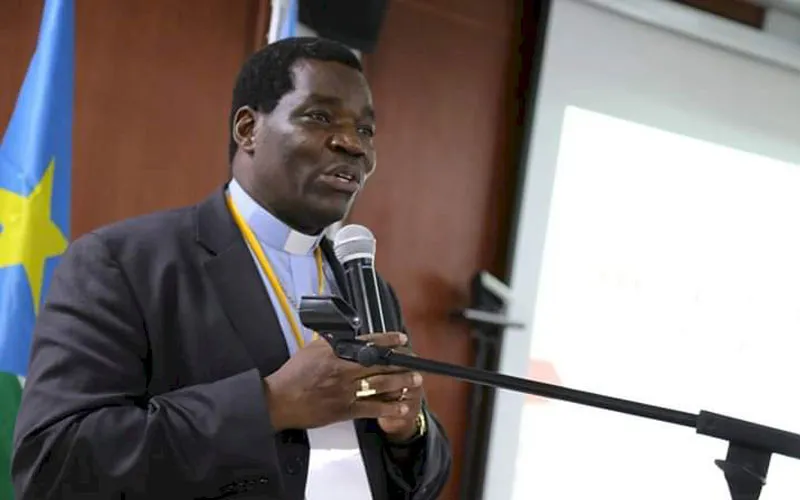Expounding his call on the country’s authorities, Bishop Hiiboro highlights the political stability of the nine-year-old nation, people’s peaceful co-existence, and the implementation of justice as key results of “the reorganization, maintenance and care of men and women in uniform.”
“If they (soldiers) are organized, they will efficiently carry out their role of protecting people, of enforcing justice and order within our country,” he says, and explains, “Leaving them (soldiers) in a chaotic way like it is at the moment, is actually leaving the country at the mercy of disorganization, of confusion, of violence and lawlessness.”
Bishop Hiiboro reveals, “I am still aware that so many groups that had taken arms have not yet given up their arms; they are still holding their guns.”
The Local Ordinary of Tombura-Yambio goes on to say that the different categories of people who took arms against the government, bringing a lot of suffering to innocent people “are still holding guns today.”
“They are still in their groups; they still have their commanders, they still have their leaders,” he says in reference to militants in the country.
“Why do we need military people, why do we need police, why do we need prison warders, why do we need the rangers, why do we need security personnel, why do we need these people?” the Bishop who will turn 57 next month probes.
He offers, “We need them (forces) because the people who live in this country need to be protected, to be guided, to be supported; the people in this country need their lives to be put in order.”
Additionally, the Shepherd of the Catholic Diocese of Tombura-Yambio appeals for the care of army forces who he says should be given necessary resources to live decent lives “so that they are not tempted to go beyond their own duties.”
“I am so much aware that most of our soldiers go hungry; most of them do not have decent houses to live in; they do not have proper medical support; they do not have insurance for their families and they are lacking in so many other basic necessities,” says Bishop Hiiboro.
To political leaders in South Sudan, he says, “I am therefore calling upon our government and all those concerned especially at this moment when we have a government of national unity, that if we can prioritize the reorganization of our army, then we will be doing justice to this nation.”








